 In the November 2021 issue of the Cambridge Law Journal, junior barrister at leading chambers Fountain Court, and Associate Lecturer in our department, Aaron Taylor, has published a case note on ‘Civil Claims for Secret Commissions’, on Wood v Commercial First Business Limited; Business Mortgage Finance 4 PLC v Pengelly [2021] EWCA Civ 471
In the November 2021 issue of the Cambridge Law Journal, junior barrister at leading chambers Fountain Court, and Associate Lecturer in our department, Aaron Taylor, has published a case note on ‘Civil Claims for Secret Commissions’, on Wood v Commercial First Business Limited; Business Mortgage Finance 4 PLC v Pengelly [2021] EWCA Civ 471
The civil law’s concern with bribery and undisclosed commissions is usually explained as a concern about an agent’s abuse of posi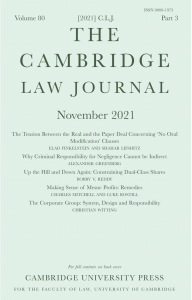 tion for his or her personal advantage, typically to the disadvantage of his or her principal. In these circumstances, the agent is generally described as a fiduciary, and the receipt of a bribe of secret commission as a breach of fiduciary duty. But the requirement that the bribed agent be a fiduciary has often required the court to expand the definition of a fiduciary relationship, giving practical justice at the expense of principle. As the Court of Appeal noted in Wood v Commercial First Business Limited; Business Mortgage Finance 4 PLC v Pengelly [2021] EWCA Civ 471, at [46], it required the term ‘fiduciary duty’ to “be applied so widely as virtually to deprive it of content”. In these conjoined appeals, the court was asked to determine the whether the fiduciary requirement is good law. It held that it is not.
tion for his or her personal advantage, typically to the disadvantage of his or her principal. In these circumstances, the agent is generally described as a fiduciary, and the receipt of a bribe of secret commission as a breach of fiduciary duty. But the requirement that the bribed agent be a fiduciary has often required the court to expand the definition of a fiduciary relationship, giving practical justice at the expense of principle. As the Court of Appeal noted in Wood v Commercial First Business Limited; Business Mortgage Finance 4 PLC v Pengelly [2021] EWCA Civ 471, at [46], it required the term ‘fiduciary duty’ to “be applied so widely as virtually to deprive it of content”. In these conjoined appeals, the court was asked to determine the whether the fiduciary requirement is good law. It held that it is not.
Aaron’s case note explains and welcomes the Court of Appeal’s decision. Here argues that dispensing with the fiduciary requirement reflects the reality that there is a broad spectrum of relationships in which the judgement of one person with influence over another may be swayed by a bribe or commission, and that reality is not best served by the straightjacket of the ‘fiduciary’ label. He goes on to consider to what extent the bribed person must have influence over the principal’s decision-making process. Aaron argues that something more than a minimal “role in the decision-making process” (the phrase used in Novoship v Mikhaylyuk[2012] EWHC 3586 (Comm), at [108] and quoted in Wood; Pengelly) must be required before a person can be held liable for having offered self-interested advice.
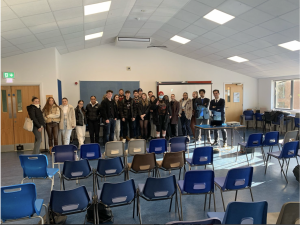
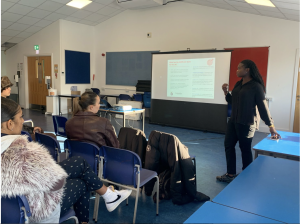
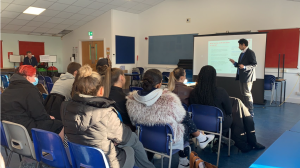
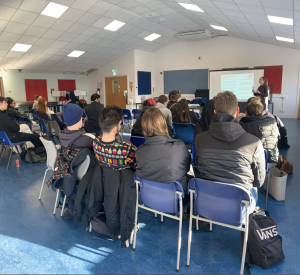



 The audiovisual exhibition featured AI-generated art, neural networks and other forms of art and cutting-edge technology, all of which are particularly relevant to the innovative LLB curriculum at
The audiovisual exhibition featured AI-generated art, neural networks and other forms of art and cutting-edge technology, all of which are particularly relevant to the innovative LLB curriculum at